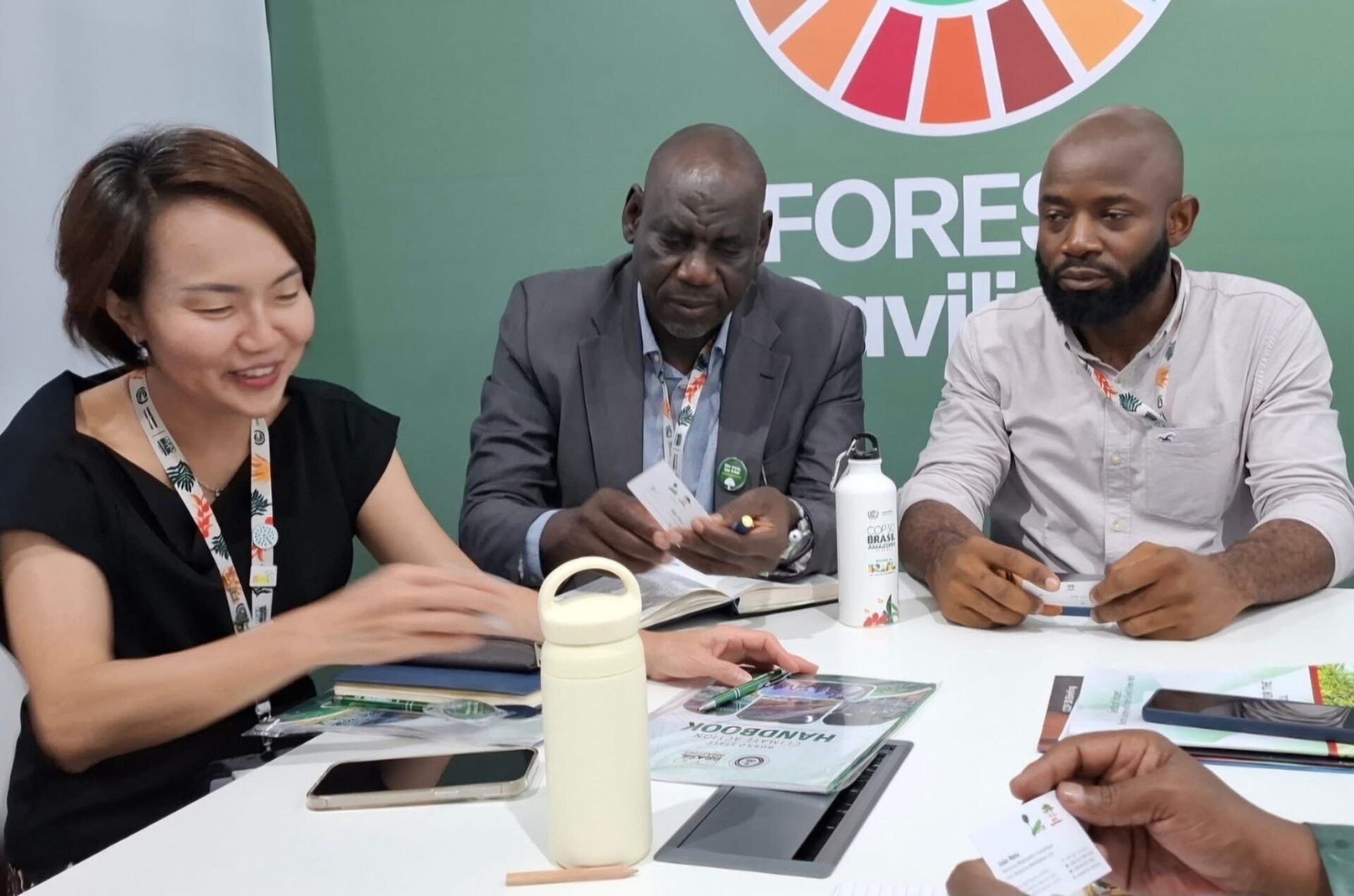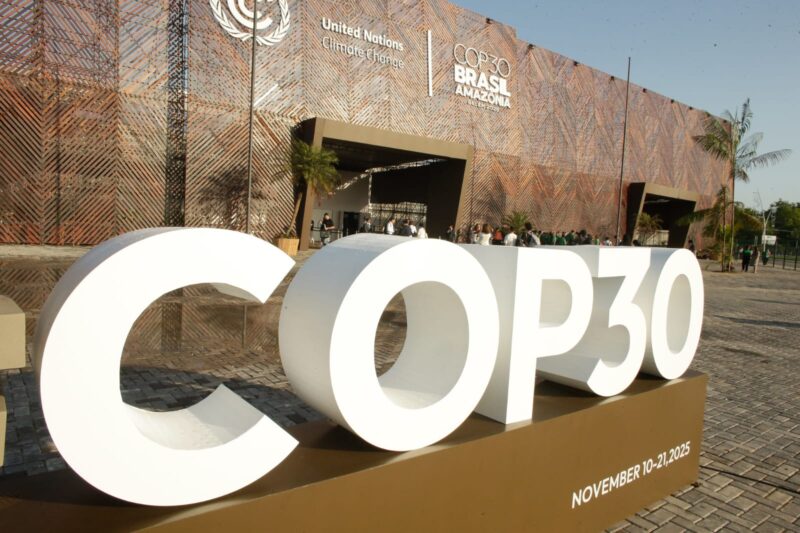The 30th session of the Conference of the Parties to the UNFCCC (COP30) took place in Belém, Brazil from 10th to 21st November 2025. The conference brought together global leaders, negotiators, climate experts, and youth advocates to discuss urgent climate action, adaptation finance, and sustainable development. This year, the event focused on implementing solutions rather than simply negotiating commitments.
Among the four delegates from Borno State were Ambassador Usman Aliyu, Director-General of the Borno State Agency for the Green wall; the Senior Special Assistant on Agroforestry to the Borno State Governor; the Project Coordinator for New Map; and the Commissioner of Environment. Sharing his reflections, Aliyu said, “the theme of this year’s COP30 focused on how the world can be green and how the money specifically set aside to fight climate change can be accessed and utilized.”
He added, “Not everything that was planned happened as expected, but efforts were made to ensure these two major areas were addressed. Some countries have already started receiving funds from the allocations made. From last year to this year, more achievements were recorded compared to COP28.”
Aliyu highlighted the relevance of COP30 outcomes to Borno State. “The theme centred on action rather than discussions. The need to reduce heat temperature to 1.5 degrees is urgent,” he said, noting that Borno experiences temperatures between 30 and 34 degrees Celsius. He further explained, “there is damage done to farmlands by sand, and restoring such lands is where the focus on action becomes important.” He expressed optimism about ongoing efforts to enforce the Paris Agreement and ensure that commitments translate into real-world impact.
The conference also fostered networking among delegates. Aliyu noted, “Some engagements even led to the signing of MoUs after agreements were reached, including counter-funding, grants, and loans.” He added that, despite a fire outbreak at Zone B, “no casualties were recorded. At least 20 people affected by smoke collapsed but were taken care of in an emergency unit, and some have now recovered. Activities returned to normal shortly after the incident.”
Key takeaways for Borno included climate-smart agriculture, climate innovation, and methods to assess climate finance at both country and state levels. Aliyu admired Brazil’s green forests, strict tree-planting regulations, and advanced waste management systems, stating, “these are things I have learned and will work toward making possible in Borno State.”

Nigeria’s Diplomats Reflect on COP30 Achievements
Alhaji Muhammad Adam, a diplomat supporting Nigeria in climate policy development, also shared his insights. He said, “one of the most striking things for me at COP30 was the historic inclusion of trade in climate policy. For the first time, trade formally entered the climate negotiation space, recognising how deeply climate action is linked to global markets, supply chains, and economic systems. This marks a major structural shift that will shape future climate ambition.”
Adam welcomed the adoption of the Belém Package, which includes commitments such as tripling adaptation finance from $40 billion annually to $120 billion by 2030. “For developing countries like Nigeria, scaling up adaptation funding is critical for addressing the challenges highlighted in our NDCs,” he explained. He also noted the global shift “from promises to implementation, central to Africa’s demands,” though he expressed concern over the absence of major emitters like the United States, India, and China.
Highlighting opportunities for young people, Adam urged youth advocates to move beyond traditional activism. “Tree planting remains important, but the world has evolved, and so must young people’s approach. Scalable, technology-driven climate solutions are essential,” he said. He pointed to opportunities in clean energy, smart agriculture, water efficiency tools, early-warning systems, and nature-tech platforms, adding that funding is available through initiatives like the Earth shot Prize and global innovation funds.
Academic Perspective on COP30 Challenges
Dr. Mustapha Adam Kolo, a lecturer in Geography, offered a critical perspective. He noted that while promises are made annually at COP events, many remain unfulfilled because the largest contributors to climate change are often developed countries that also sponsor the events. Using Coca-Cola as an example, he said, “The company sponsors climate events but also produces a lot of plastic waste. This raises questions about how meaningful progress can be achieved under such circumstances. Some promises might take 40 years to be fulfilled.”
Despite these concerns, Dr. Kolo acknowledged successes at COP30, including the enforcement of the Paris Agreement, encouraging the use of cleaner cars, and the growth of tree-planting campaigns.
Moving Forward: Local and Global Implications
Overall, Borno delegates and experts emphasized that COP30 provided lessons, inspiration, and practical tools for local climate action. From leveraging climate finance to adopting green practices in agriculture and waste management, the state now has insights to translate international agreements into tangible projects on the ground.
As Adam concluded, “Climate finance must flow to the most vulnerable communities where support is urgently needed. Developing nations are feeling the full weight of the crisis, and leadership from major emitters cannot be optional. COP30 has shown that the time for implementation is now.”
Rukaiya Ahmed Alibe









